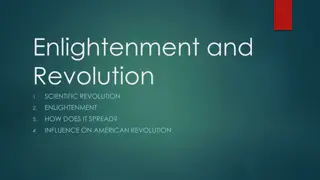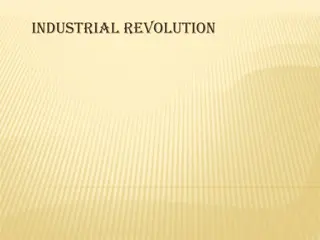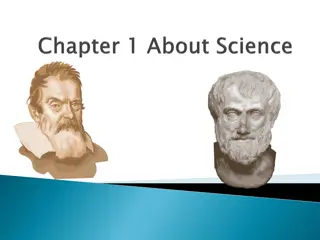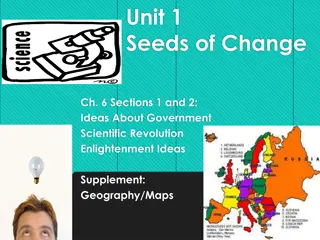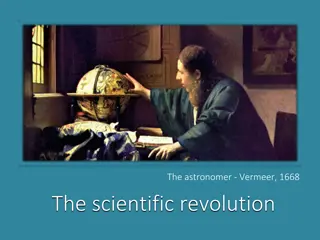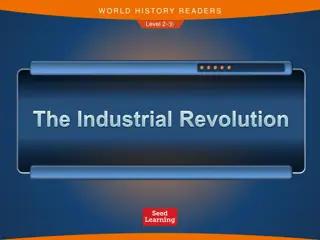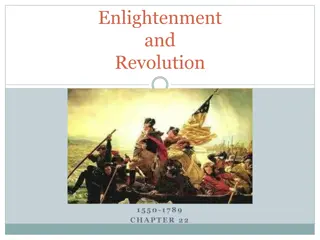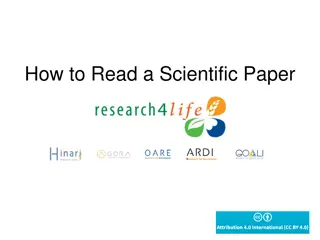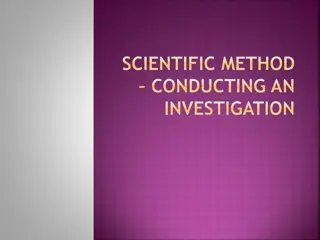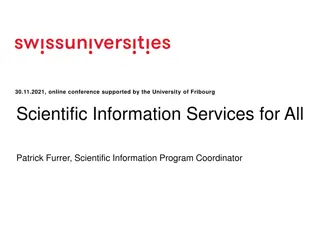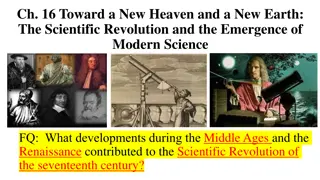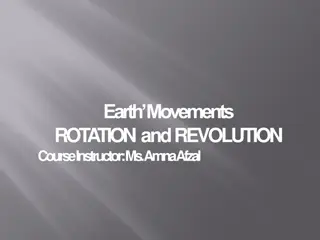Explore the Scientific Revolution
The Scientific Revolution marked a shift from the medieval worldview to a secular, rational, and materialistic perspective. Key terms such as geocentric and heliocentric conceptions, Cartesian dualism, rationalism, and the scientific method played pivotal roles in shaping this transformative period. This era saw the ascendancy of empirical observation, the world-machine concept by Newton, and debates on women's nature. It heralded a new era of inquiry and discovery that revolutionized scientific thought.
Download Presentation

Please find below an Image/Link to download the presentation.
The content on the website is provided AS IS for your information and personal use only. It may not be sold, licensed, or shared on other websites without obtaining consent from the author. Download presentation by click this link. If you encounter any issues during the download, it is possible that the publisher has removed the file from their server.
E N D
Presentation Transcript
Ch. 16 Toward a New Heaven and a New Earth: The Scientific Revolution Key Terms
Scientific Revolution (p. 473) The transition from the medieval worldview to a largely secular, rational, and materialistic perspective that began in the seventeenth century and was popularized in the eighteenth.
geocentric conception (p. 474) The belief that the earth was at the center of the universe and that the sun and other celestial objects revolved around the earth.
heliocentric conception (p. 475) The belief that the sun, not the earth, is at the center of the universe.
world-machine (p. 484) Newton s conception of the universe as one huge, regulated, and uniform machine that operated according to natural laws in absolute time, space, and motion.
quarelles des femmes (p. 488) arguments about women . A centuries-old debate about the nature of women that continued to during the Scientific Revolution as those who argued for the inferiority of women found additional support in the new anatomy and medicine.
Cartesian dualism (p. 490) Descartes s principle of the separation of mind and matter (and mind and body) that enabled scientists to view matter as something separate from themselves that could be investigated by reason.
rationalism (p. 488) A system of thought based on the belief that human reason and experience are the chief sources of knowledge.
scientific method (p. 490) A method of seeking knowledge through inductive principles, using experiments and observations to develop generalizations.
empiricism (p. 491) The practice of relying on observation and experiment.


